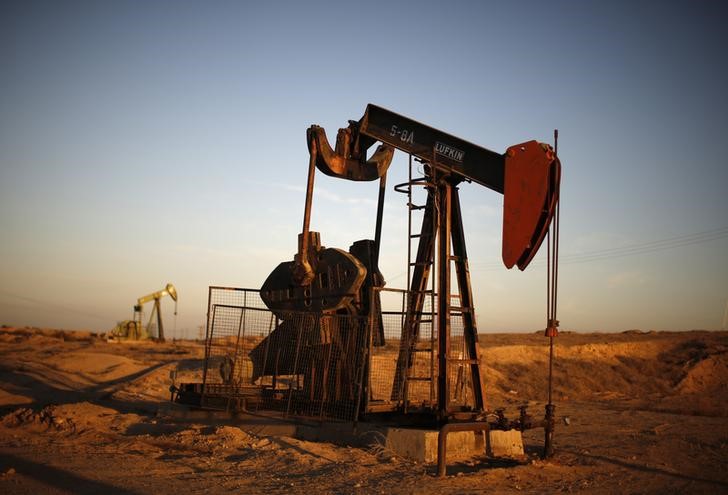Oil prices fell about 3% to their lowest since before Russia's invasion of Ukraine as economic data spurred concerns about a potential global recession, while the market awaited clarity on talks to revive a deal that could allow more Iranian oil exports.
futures fell $2.76, or 2.9%, to settle at $92.34 a barrel. The contract hit a session low of $91.71 per barrel, the lowest since Feb. 18. West Texas Intermediate crude (WTI) shed $2.88, or 3.2%, to settle at $86.53 a barrel. The benchmark fell to a session low of $85.73 per barrel, lowest since Jan. 26.
The contracts fell about 3% in their previous sessions.
The European Union is assessing Iran's response to what the bloc has called its "final" proposal to save a 2015 nuclear deal, and consulting with the United States, an EU spokesperson said on Tuesday.
Iran responded to the proposal late on Monday but none of the parties provided any details.
Weak economic indicators weighed on prices.
U.S. homebuilding fell to the lowest level in nearly 1-1/2 years in July, weighed down by higher mortgage rates and prices for construction materials, suggesting the housing market could contract further in the third quarter.
China's central bank cut lending rates to try to revive demand as the nation's economy slowed unexpectedly in July after Beijing's zero-COVID policy and a property crisis slowed factory and retail activity.
State media quoted Premier Li Keqiang as saying that China will reasonably step up macro policy support for the economy.
Barclays cut its Brent price forecasts by $8 per barrel for this year and next, as it expects a large surplus of over the near-term due to "resilient" Russian supplies.
Market participants awaited industry data on U.S. oil inventories expected later. Crude and gasoline stockpiles likely fell last week, while distillate inventories rose, a preliminary Reuters poll showed on Monday.





















